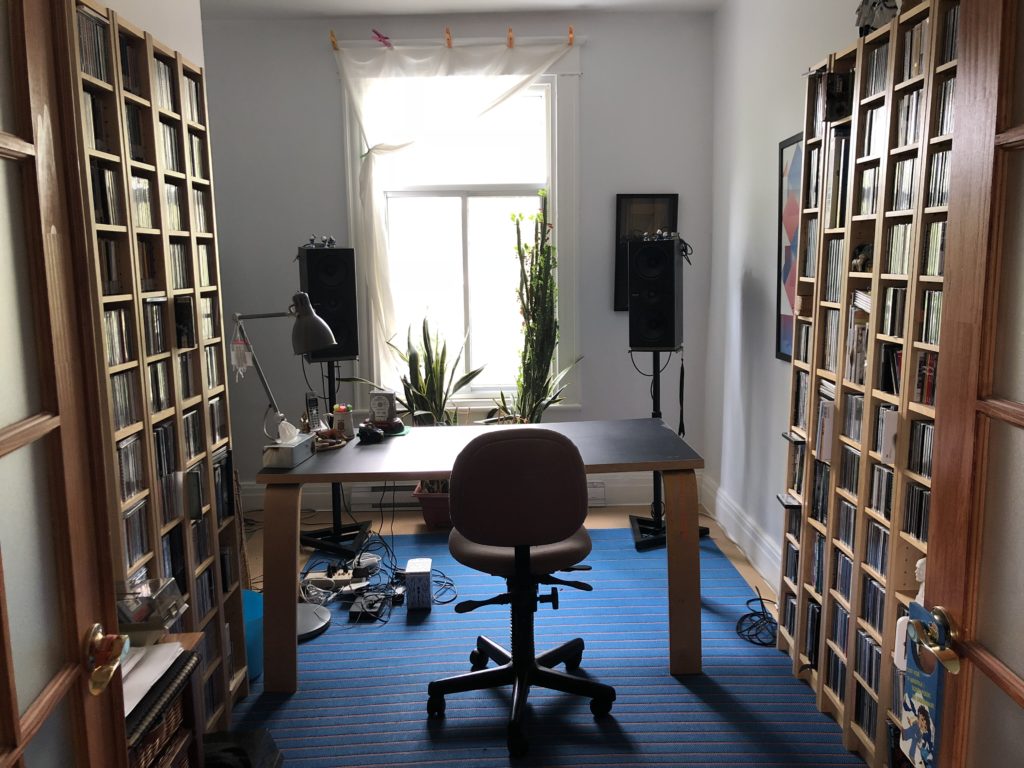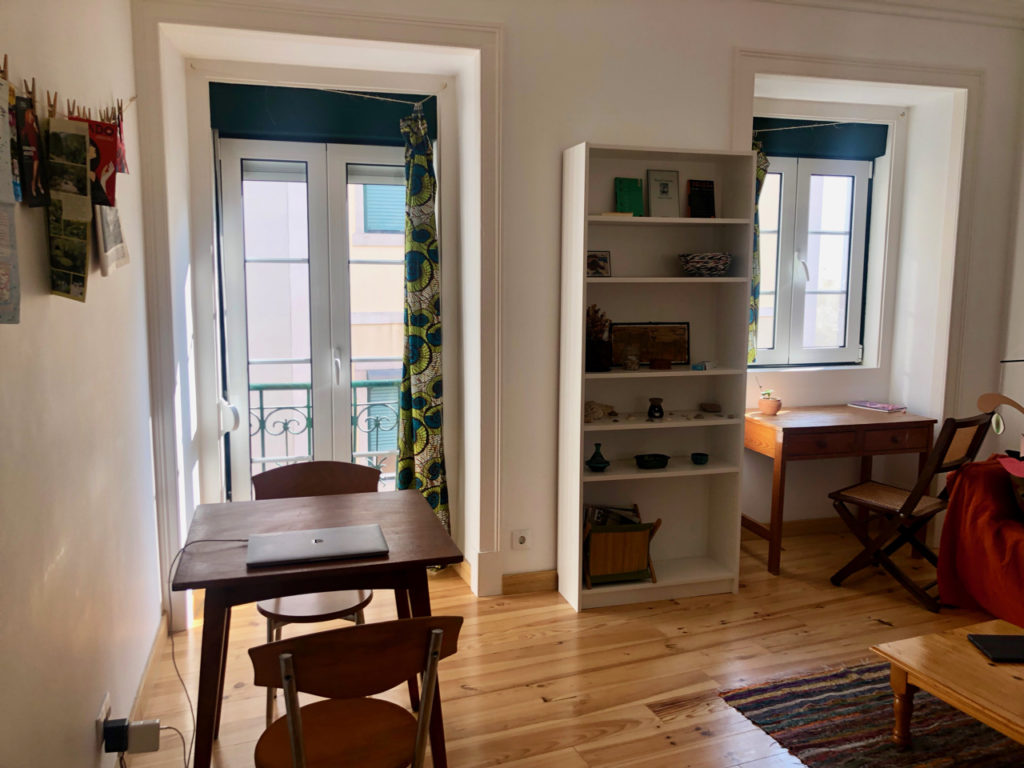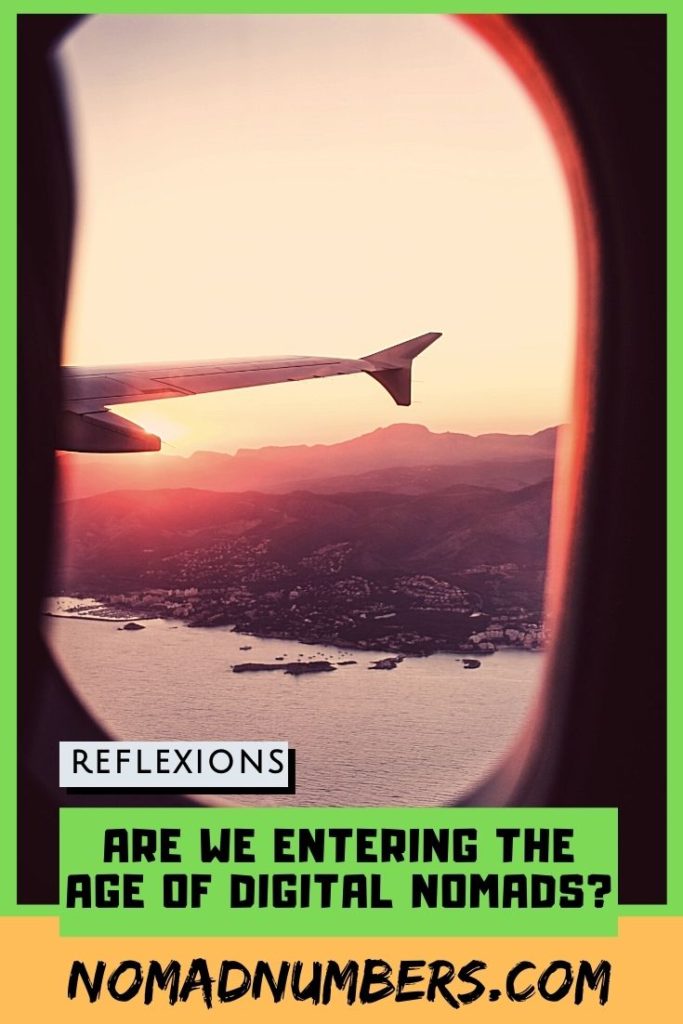2020 has been an unprecedented year due to the global pandemic that has touched pretty much all areas of our lives. It’s impacted family, business, work and of course, travel and I think it’s safe to say that a lot of these areas will permanently change from what it was pre-pandemic.
As we look forward to a brighter 2021, we are going to discuss what mostly positive changes we think we can expect to see about remote work, why digital nomadism is about to become more popular than ever and what impact this will have on the travel industry in general. Let’s dig in!
Everyone went remote and it was good
As a software engineer, most of the people I know work in the Tech industry and while very few lost their job due to the pandemic (the tech sector has actually grew from it), all of them had to adapt to the new normal of becoming a full-time remote worker, by working from the new office they had to setup in their home. Even those that don’t traditionally do their work online, had to adjust and figure out ways to be online.
Last summer, Google and other tech giants announced (source) that employees would have the option to keep working from home until the summer of 2021. Companies have started to realize that people can remain productive when they aren’t tied to a desk and some are already rethinking having a headquarter at all (source). Plus remote work seems to make employees feel more engaged and improves mental health!
A recent study from Accenture found that employees crave the flexibility to “achieve the productivity that helps my mental health.” And one study found that, being granted this flexibility, at least 60% of employees feel more productive and engaged at work.
Source
It took a pandemic for companies to trust that employees can do as well (if not better) while being remote and soon to follow may be more flexibility in their working hours and location.
While the pandemic has given employers a glimpse into a new way to be effective and productive, it has also given employees time to reflect on their lifestyle and many have taken remote work to the next level by moving outside of their current state or country while maintaining their salary thanks to geo-arbitrage.
Geo-arbitrage: Taking advance of the price difference between countries/locations
Our definition of Geo Arbitrage

(Airbnb link).
Countries want to attract a new wave of remote workers
Countries are also finding ways to tap into this influx of remote workers by offering accommodating visa options.
Here are a few examples:
- Bermuda offers the “Work from Bermuda” program, allowing travelers to stay up to a year without having to pay income tax. Cost 263 USD for one year.
- Estonia offers an e-residency program. Cost 100 EUR (~120 USD) / year.
- Taiwan offers the Taiwan Employment Gold card, that provides up to 3 years to residency in Taiwan, one of the safest countries in the world right now and such a hidden gem! Cost: ~300 USD for 3 years.

(Airbnb link)
These new digital nomads need a place to stay
With this new remote workforce, they will all be looking for monthly rentals and co-working spaces to be productive. In the near future, this may increase the cost of these rentals and co-working spaces but hopefully supply will soon catch up to the demand.
Some hotel chains are also starting to offer subscriptions or providing month-long options to accommodate remote workers (source). Something that Airbnb has been offering for a few years already.
Airbnbs make very convenient digital nomad rentals because they include all the comforts of an apartment without the commitment – just need to make sure there is good wifi and a quiet working space.
Check out some examples of place we’ve stayed in while Mrs. NN was working remotely and they are great examples of places that accommodate for remote work:
Pro-tip: We created a guide of our major tips that have helped us find great stays at really affordable prices. For more, make sure to read our ultimate guide to Airbnb.
Exodus from the big cities
If you don’t have to commute into the office everyday, do you need to live in some of the most expensive and crowded cities in the world? Being central is no longer a necessity as we’ve seen many people move out of major cities and into the suburbs or countryside during the pandemic. People may start to prioritize healthcare more than they did in the past and consider countries with good and inexpensive healthcare. When you don’t require face-to-face meetings, you can literally be based anywhere with a wifi connection!

(Airbnb link)
Travel will slow down
What I personally think will be a positive change when travel returns, it is likely to dramatically slow down. Due to safety requirements and possible quarantines, everyone will need to be more thoughtful and selective about their travel. The one week of fast travel will be discouraged and maybe swapped for a month long hybrid of vacation and work.
Slow Travel: a sustainable way to travel the world over a very long period of time by building deeper connection with the environment surrounding you (people, food, nature, culture…)
Our definition of slow travel
Thanks to remote work and more flexible visas, people should be able to travel for longer periods of time. This will bring many benefits like truly experiencing a place, discovering hidden gems, avoiding crowds, being more green, helping the local economy and more. We wouldn’t be surprised if people found this way of travel to be much more satisfying and enjoyable.
Our Bottom Line
In 2020, many workers went remote and hence “digital” but no one could travel. Optimistically speaking if travel opens up in 2021, we could see a huge spike of these remote workers become digital nomads – making 2021 a big year for digital nomads and for slow travel!
It is not about where you live anymore as companies have realized that people can still be productive independent of their location. More people will enjoy the benefit of remote work and will require more flexibility from their employers in the future.
It will become easier to travel for longer periods of time with countries creating new visas to welcome foreign workers. This can be a great win-win situation to support the local economy while allowing digital nomads to stay for a longer period of time.
2021 might be a big year for slow travel as travelers will have the opportunity to see more of the world by slowing down and taking the time to really enjoy their surroundings. Ultimately this should lead more people to live happier and more fulfilled lives. But only the future will tell!
What about you? Have you been and still plan to be working for home for the foreseeable future? Have you considered moving to a different location and tapping into the advantage of geo-arbitrage and come to places that might actually be safer than where you currently live (hint: Taiwan is a good one and you might qualify to apply for the Taiwan Gold card :D)
Note: If you want to learn more on this topic, here are a few articles that we’ve found useful when doing our research.
- Does the pandemic mean the end for digital nomads? (Fast Company)
- Rethinking office design for our post-covid return (Poly)
- Is the office obsolete? Many travelers hope so (National Geographic)
- Google will keep employees working remotely until July 2021 (The Verge)
- COVID-19 ushers in a new era of full-time travel (Wall Street Journal)




4 Comments
Tara Matthews · December 14, 2020 at 3:31 pm
While digital nomading may increase, there are many career choices, most of which are important to the fabric of society, that cannot. I would like to see more digital nomads become more involved with the immediate society around them. Volunteering for work projects, and making life better wherever they go rather than looking for the cheapest way to get by. Generations of people build towns and culture. Healthcare workers, social workers, firefighters, restaurant owners, custodials….They don’t have an option for a long leisurely vacation somewhere. They give their life blood to the communities that they live in and we need to find ways to support them and give them what they need as well. So I do hope that a movement around digital nomad‘s begins to evolve to involve the people that make their lives possible. We’ve seen a tremendous influx of people into our rural town that are not involved with the every day caretaking of it. The responsibility of being an eternal traveler it’s to be conscious about it and the effects it has on the world around them.
Mr. Nomad Numbers · December 15, 2020 at 8:43 am
Hi Tara. Thanks for sharing your perspective. This is a very valid concern and something we did not address in our post as we were looking at the evolution of digital nomadism primarily in relation to the pandemic. There is definitely a portion of the digital nomads (the “begpackers” as some like to call them) that are more benefiting from the system that gives back to it and this has lead countries like Thailand to be more strict on their visa policy. What solution would you suggest to address this issue from your perspective?
AM · December 14, 2020 at 4:57 pm
Hi NN – I’ve been reading your blog for awhile; great content. My spouse is full time remote and I am remote for the duration of the pandemic. I will consider finding a new job if my work doesn’t allow more remote options after return to the office. We looked at geo-arbitrage, but one unfortunate thing is that we are both tied to US working hours so this limits us. We looked at Ecuador recently due to this fact. We also might wait until FI in 4-5 years and then do consulting on our own time with endless possibilities. Your view in Montenegro looks dreamy! Cheers -A
Mr. Nomad Numbers · December 15, 2020 at 8:49 am
Hi Angelica. Thanks for being a long time reader of our blog, this means a lot to us! When Mrs. NN had a remote job that was required to be available during US hours, we only looked for Airbnb with strong internet connections. Among those, our favorites places were San Miguel de Allende, Montreal [summer only], and Aruba. You can get more details about each of them in our first year of nomadic travel spending report: https://www.nomadnumbers.com/year-one-nomadic-travel-spending-report/. This might be an okay tradeoff until you guys reach FI. 4-5 years isn’t that much, especially when you work when usually times seem to be flying by isn’t it?